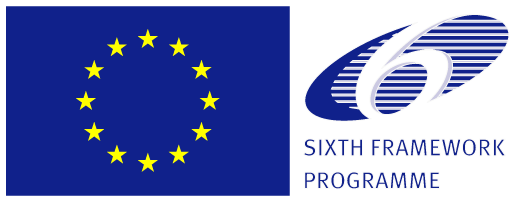Funding Organisation: European Union, 6th Framework Programme
Industrial Sector: Nanotechnology (Electronics and Thermal management)
Region: Europe
Project Period: January 2008-December 2009
Partners: Consortium of 11 partners from 8 countries, coordinated by CEIT (San Sebastian, Spain). ARC (Seibersdorf Research GMBH, Austria), INP (Institut für Niedertemperatur-Plasmaphysik e.V. Greifswald, Germany), UBO (Ruhr-University Bochum, Germany), UCAM-DMSM (University of Cambridge, UK), LIU (Linköpings Universitet, Sweeden), CRF (Centre Riserche Fiat Società Consortile per Azione, Italy), FC (FutureCarbon GmbH, Germany), IMA (Engineering Services Limited, Malta), JOLD (Jenoptik Laserdiode GmbH, Germany).
Main Researcher: Dr. Jon Molina (jon.molina@imdea.org)
A Specific Targeted Research project funded by the European Union within the Sixth Framework Programme. IMDEA Materials Institute is one of the research centers in a consortium of 11 partners from 8 countries, coordinated by CEIT (San Sebastian, Spain). The consortium is made up of experts in processing and modelling of nanocomposites materials, together with several end-users of heat sink devices in thermally high loaded applications, such as high power laser diodes and electronics. The approximate budget of the project is 3 M€.
The main objective of INTERFACE is to gain the necessary knowledge to engineer the interface of Cu matrix composites reinforced by carbon nanofibres, to develop a low-cost material with a dramatically improved thermal conductivity. INTERFACE is driven by industrial needs to develop more efficient low-cost heat sink materials for optoelectronics, LED displays, power switches and laser diodes, among others. The research will contribute to breakthroughs in our understanding of interfacial phenomena and to innovative means of functionalisation of carbon nanofibres, contributing to develop a nanotechnology based industry in Europe.
IMDEA Materials Institute contribution to the project will include the development of modelling tools to simulate the mechanical behaviour of nanocomposite materials from microscopic to macroscopic level using computational micro- and mesomechanics, as well as the thermo-mechanical characterization of interfaces.
Funded by

